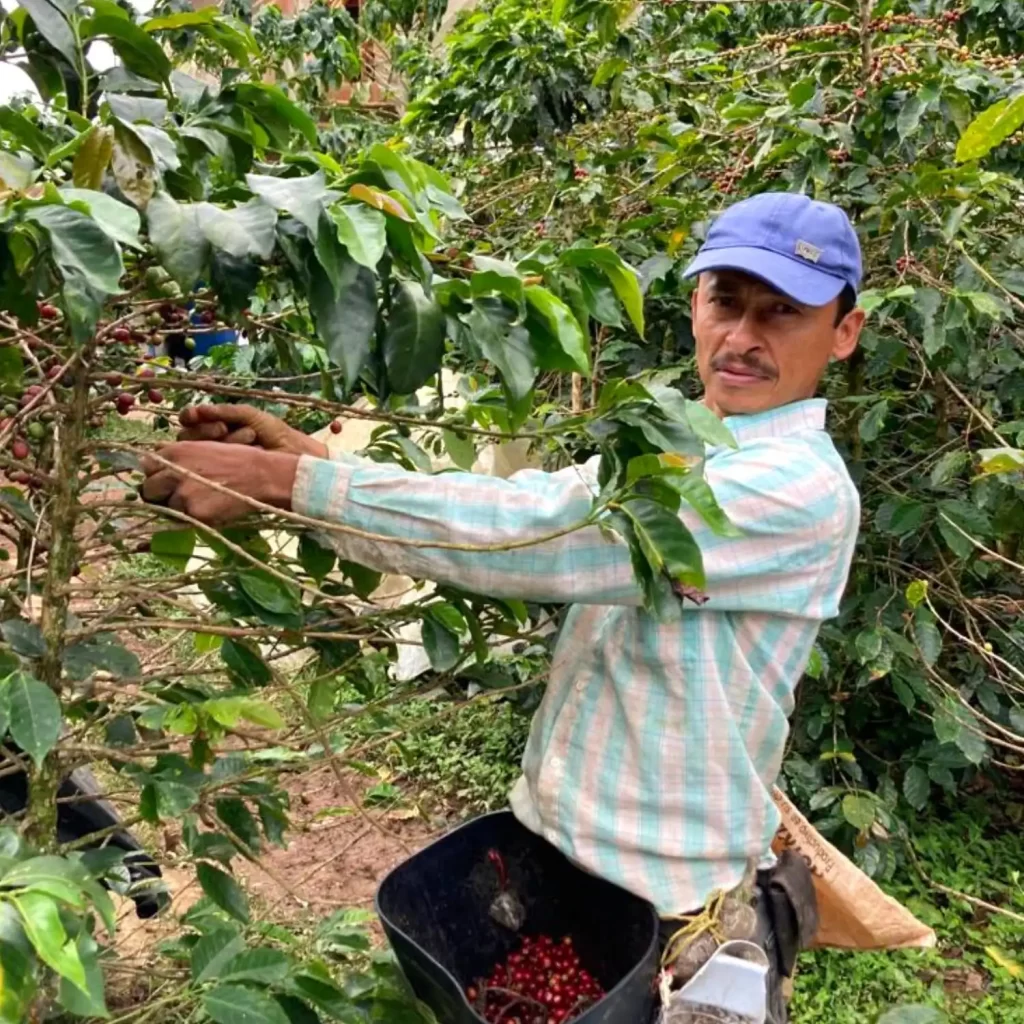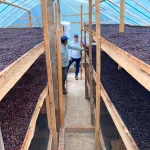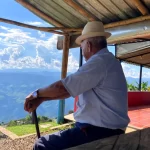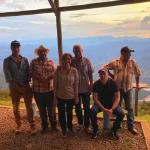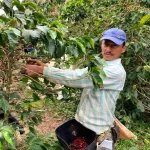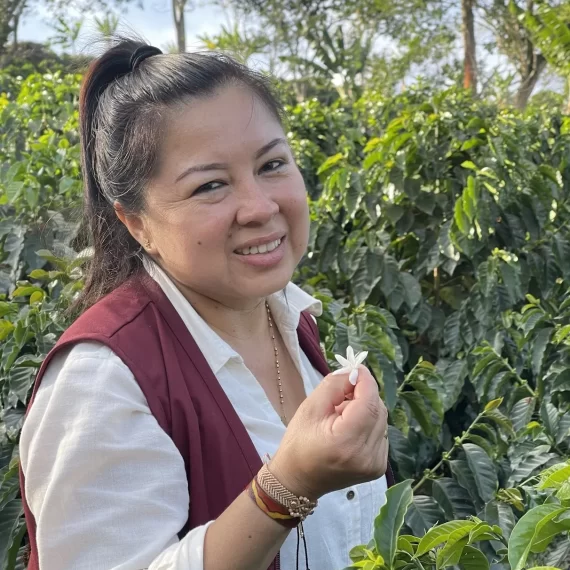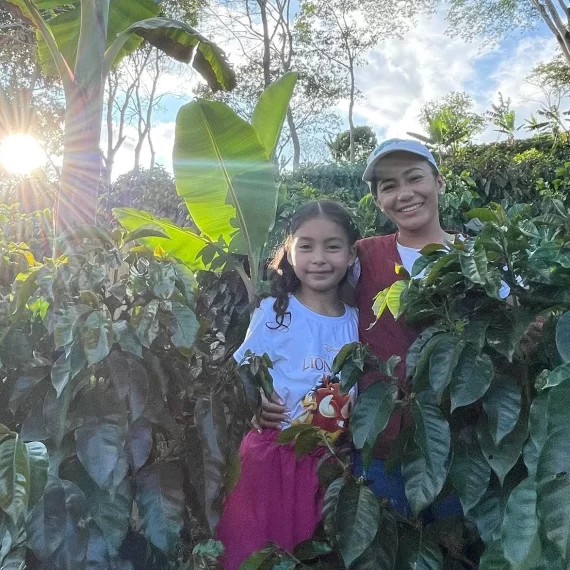
Nelson Taborda
Nelson Taborda was born and raised on coffee farms, and through his work and support from the government, he was able to own his own coffee farm, which he has been managing since he was 20 years old. He initially followed traditional practices and sold coffee to the Colombian Coffee Growers Federation. However, he has now embarked on the production of specialty coffee with great success, bringing him and his family a better income and improved quality of life.
The Taborda family is deeply involved in the coffee industry, both in trade and directly as farmers. Their farms are scattered across the hills of the picturesque village of Titiribí in the Antioquia region, about two hours from Colombia’s second-largest city, Medellín. Nelson’s brother, Walter, chose a business-oriented path and now, under the brand 1000Montañas, unites farmers around the settlement to produce natural coffees for both international markets and local cafes. Nelson is particularly passionate about honey processing and extended fermentation.
About the coffee
Crusitania farm has been in Mr. Nelson’s hands for 25 years. He acquired the land, which was previously used as a cattle farm, cleared it, and began growing coffee, a pursuit that remains his passion.
“What makes our coffee special is that we take care of the soil where we grow it. We avoid chemicals and use fertilizers that do not deplete the soil’s nutrients. We help the soil produce coffee sustainably without causing harm. The benefits of our long-standing care of the soil include high productivity, superior quality, higher ratings, and better profiling. However, the climate presents challenges. The quality of coffee is highly dependent on climate, which is difficult to control or predict.”
Nelson Taborda is not following in his father’s footsteps, but is trying to grow and process coffee through unusual processes. He focuses exclusively on natural and honey processing.
Another batch of natural coffees from the Titiribí region is here! Again, it is a blend of Castillo and Colombia varieties that have been processed as a natural lot. That is, after harvesting and then washing and washing away the defective beans, the coffee was spread out on African beds and slowly dried in a controlled manner over a period of three weeks. It is pleasantly full-bodied and juicy like previous years!
The second season of natural coffees from the Titiribí region has brought major problems due to heavy rains. We managed to select this lot and continue to work with 1000Montañas. Despite its processing, the coffee is pleasant, fermented but not overly so, with notes of sweet fruit.


